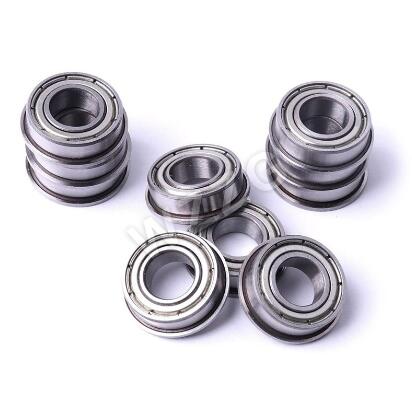Guide to Choosing the Best Miniature Bearings
Miniature bearings, small yet powerful components, are essential for a variety of applications, from consumer electronics to precision machinery. Choosing the right miniature bearings is crucial to ensure optimal performance, longevity, and reliability of your systems. In this guide, we'll walk you through the key factors to consider when selecting the best miniature bearings for your needs.
1. Load and Application Requirements: Understand the specific load conditions your bearings will be subjected to. Consider both radial and axial loads, as well as any potential impact or shock loads. Different applications may demand varying levels of load capacity and durability, so select bearings that are designed to handle the expected forces.
2. Size and Dimensions: high speed miniature bearing come in a range of sizes and dimensions. Measure the available space carefully to ensure the bearings fit comfortably without causing any interference. Additionally, consider the required clearance and tolerance levels for your application.
3. Material Selection: Choose the right bearing material based on the environment and conditions the bearings will be exposed to. Common materials include stainless steel, chrome steel, and ceramic. Stainless steel is corrosion-resistant and suitable for applications where moisture is present. Chrome steel offers good overall performance, while ceramic bearings are known for their high heat resistance and low friction properties.
4. Precision and Tolerance: Miniature bearings are often used in applications that demand high precision, such as robotics and instrumentation. Pay attention to the ABEC (Annular Bearing Engineering Committee) rating or ISO equivalent, which indicates the level of precision and tolerance. Higher ratings denote tighter tolerances and smoother operation.

5. Lubrication and Maintenance: Proper lubrication is essential for the longevity of miniature bearings. Some bearings come pre-lubricated, while others may require periodic maintenance. Consider the operating conditions and choose a lubrication type that suits your application, whether it's high-speed rotation or exposure to extreme temperatures.
6. Speed and Performance: Take into account the rotational speed requirements of your application. Custom miniature bearings are often used in high-speed applications, so choose bearings that can handle the desired RPM (rotations per minute) without excessive heat generation or wear.
7. Seals and Shields: Sealing options protect miniature bearings from contaminants, dust, and moisture, extending their lifespan. Common seal types include rubber seals (RS), metal shields (ZZ), and open designs. Assess the environmental conditions and choose the appropriate sealing option.
8. Noise and Vibration: For applications where noise and vibration are concerns, select miniature bearings with features designed to minimize these factors. Bearings with optimized internal geometry and reduced vibration characteristics can contribute to a quieter and smoother operation.
9. Supplier Reputation: Choose reputable suppliers or manufacturers known for producing high-quality miniature bearings. Look for suppliers with a track record of delivering reliable products and excellent customer support.
10. Cost and Value: While cost is a consideration, prioritize the overall value and long-term performance of the bearings. Investing in high-quality bearings that meet your application's requirements can lead to fewer maintenance issues and higher efficiency in the long run.
In conclusion, selecting the best miniature bearings involves a thoughtful evaluation of factors such as load requirements, size, material, precision, lubrication, and more. Careful consideration of these factors will ensure that the chosen bearings meet your application's demands, providing reliable and efficient performance over time. Whether you're designing consumer electronics, robotics, or precision machinery, choosing the right Miniature bearings is a key step toward achieving optimal functionality and longevity in your systems.

